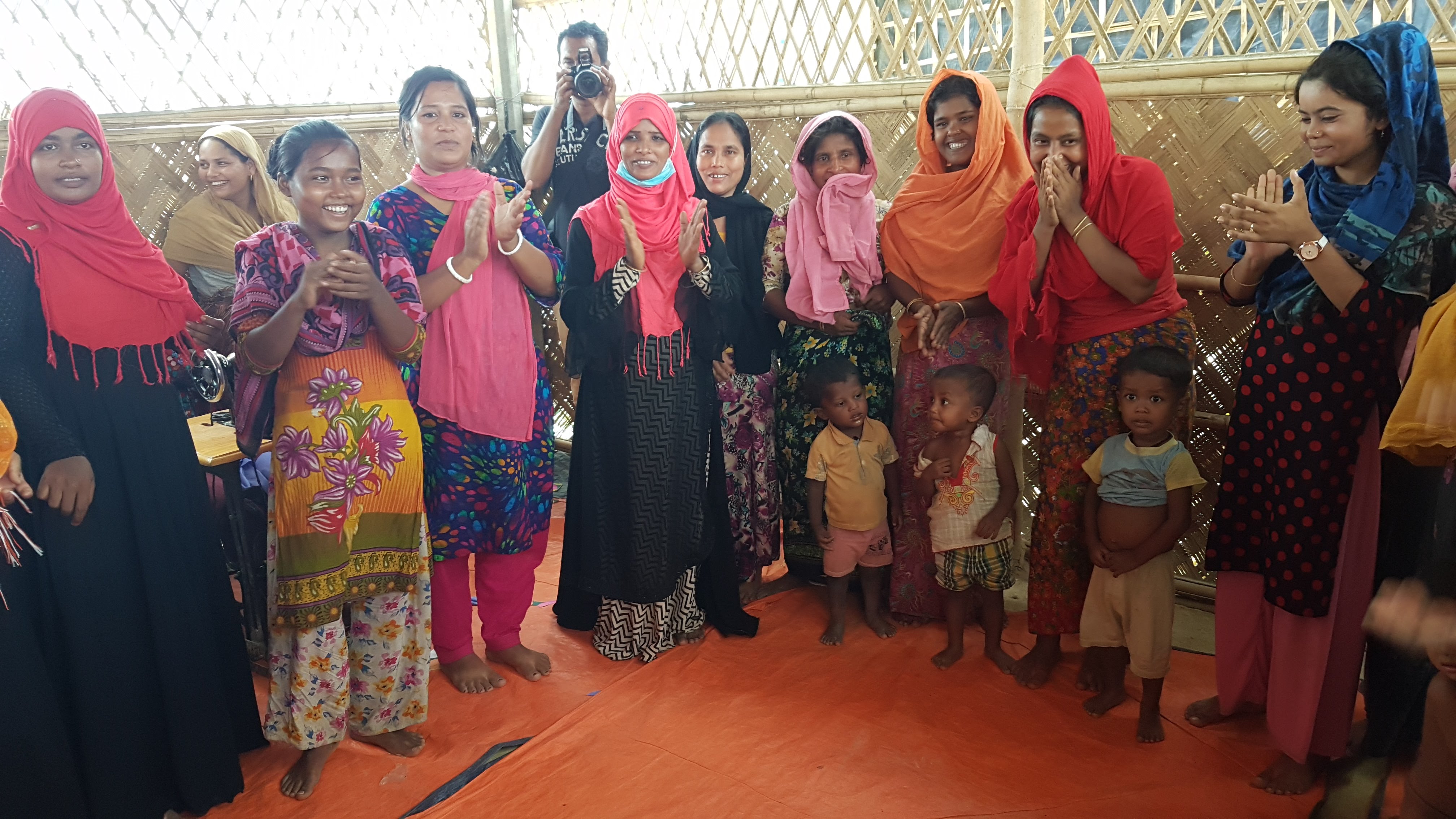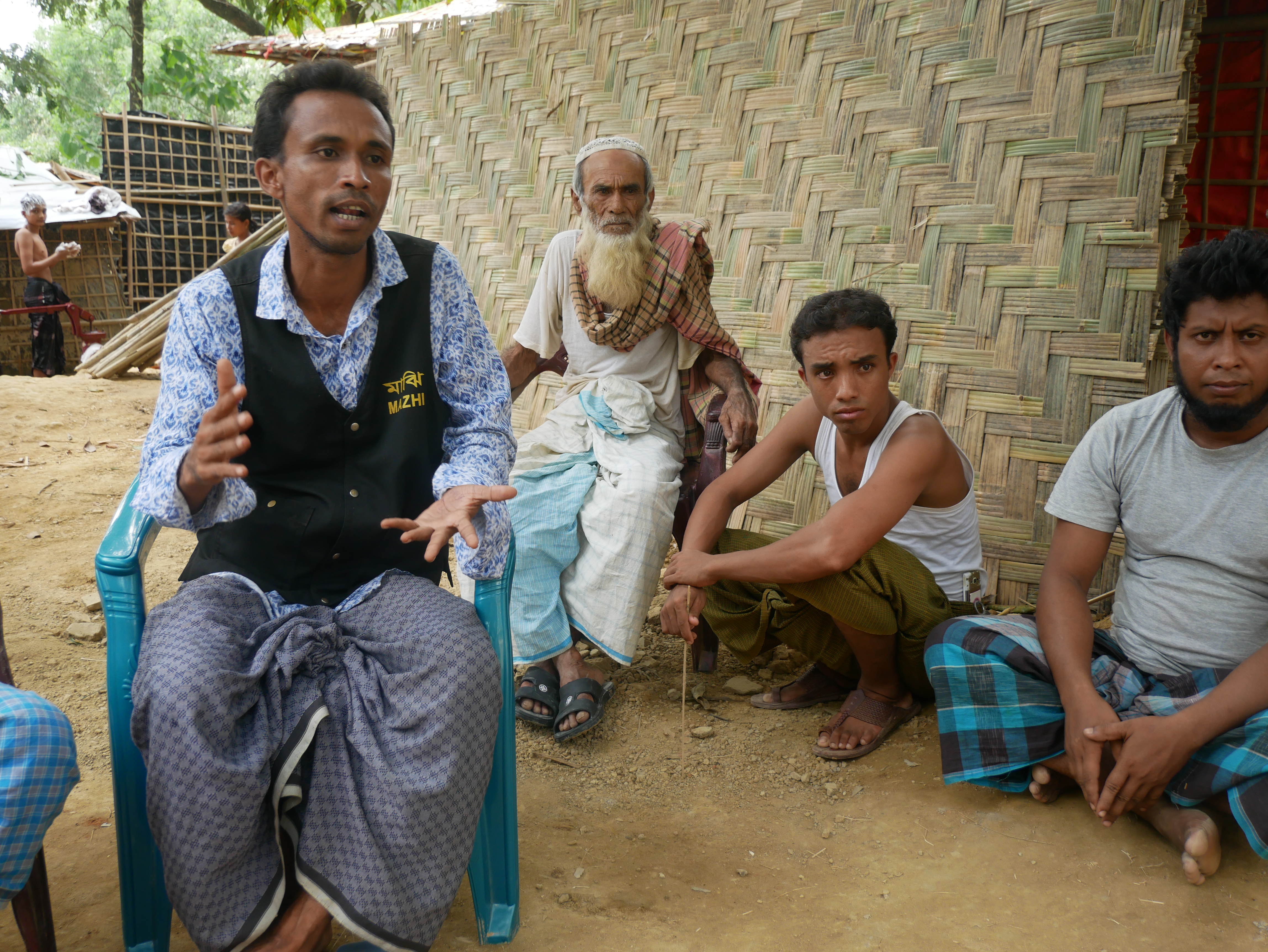
Protection from Sexual Exploitation and Abuse (SEA).
With the numbers of the Rohingya population growing since the influx from Myanmar in August 2017, many refugees have become dependent on humanitarian assistance for their survival. This means that Rohingya refugees are increasingly vulnerable to instances of sexual exploitation and abuse (SEA) from those in positions of authority, including humanitarian workers. The Secretary General’s Bulletin on Special Measures for Protection from Sexual Exploitation and Sexual Abuse, 2003 (SGB) calls on the UN system to protect affected populations from sexual exploitation and abuse by personnel of the UN and its partners and many humanitarian entities have signed onto the Statement of Commitment on Eliminating Sexual Exploitation and Abuse by UN and Non-UN Personnel, 2006.
As part of wider efforts by the Protection from Sexual Exploitation and Abuse Network (PSEA) to build capacity, awareness raising and co-ordination between actors around PSEA, Arts for Action is developing a multi-sector, mixed method, communication and action strategy.
This aims of the strategy are to:
- Ensure affected communities are aware of the expected behaviour of humanitarian staff at all levels – including volunteers.
- Reach people, especially those vulnerable to sexual exploitation and abuse, with clear, comprehensive information about PSEA and provides appropriate awareness raising tools and approaches to support both humanitarian workers and the affected population to prevent instances of SEA.
- Improve the affected community’s knowledge of how and where to report SEA, and ability to do so.
Process
The approach is community / ‘target audience’ driven – using a collaborative approach to develop the strategy whereby multiple Rohingya and humanitarian stakeholders are involved in its development. This aims to ensure communication tools are firmly rooted in Rohingya and humanitarian workers’ lived experiences
Working in collaboration with IASC, Translators Without Borders, IOM, BRAC, UNHCR, Save the Children, World Vision, Action Aid, Oxfam, UNFPA, IRC and others, this involves the following:
- MULTI-AGENCY SNAPSHOT KAP SURVEY
Individual consultations with multiple Rohingya and humanitarian field workers. Primary data will be collected from approximately 400 men and women, as well as young people aged 12-15, from across 10 refugee camps.
2. ROHINGYA “CREATIVE TASK FORCE” MESSAGE DEVELOPMENT WORKSHOPS
Interactive creative brainstorming will be carried out with Rohingya groups to establish needs, gaps and barriers to PSEA and develop ideas for messages and appropriate communication tools.
- HUMANITARIAN “CREATIVE TASK FORCE” MESSAGE DEVELOPMENT WORKSHOPS
Interactive creative brainstorming with a cross section of humanitarian field worker groups to establish needs, gaps and barriers to PSEA and develop ideas for messages and appropriate communication tools.
- COLLABORATIVE DEVELOPMENT OF COMMUNICATION STRATEGY
Key partners and PSEA Strategy Group members will use the findings to develop a communication strategy and will develop relevant messages and tools accordingly.




